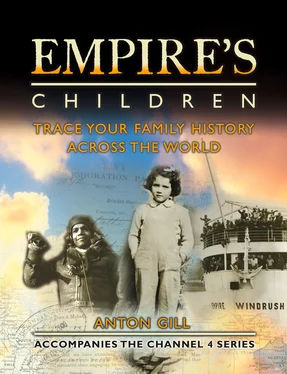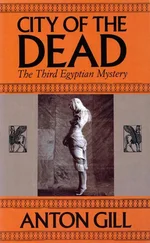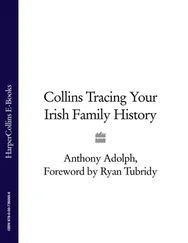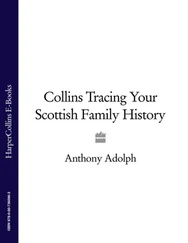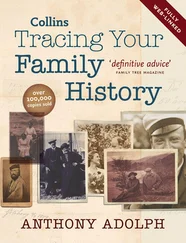Christie came to Britain aged seven. For his services to athletics he was awarded, and accepted, the OBE. Meera Syal, born here, accepted the MBE in 1997. But the poet Benjamin Zephaniah, also born here, turned his down in 2003, defying convention by doing so publicly, and giving as his reason that it, and its association with the Empire, recalled to him ‘thousands of years of brutality, it reminds me of how my foremothers were raped and my forefathers brutalised’. This sparked a discussion about whether the ‘Empire’ gongs should be dropped altogether, though this is unlikely to happen soon.
There is no doubt that elsewhere a dark ghost of Empire remains, exemplified recently by the trial, still ongoing as I write, of Thomas Cholmondeley, heir to the Delamere fortune. The Delameres are an aristocratic family who have farmed in Kenya since the 3rd Baron arrived there in 1903, and they own huge tracts of land, appropriated from the Masai, in the Rift Valley. Their name is associated with the Happy Valley set, which became notorious through the book and film of the same title White Mischief. They do not have a high tradition of tolerance with regard to native Kenyans.
In April 2005, game warden Samson Ole Sisina, aged forty-four, was killed by the then thity-seven-year-old Cholmondeley on the Delamere family’s ranch near Lake Naivasha. Sisina was armed, and dressed in plain clothes, as part of an undercover investigation into the illegal trade in bush meat. Cholmondeley maintained that he shot the warden through the neck, but in self-defence, believing him to be a robber. Local whites immediately said it was the result of police failure to tackle a spate of car-jackings, burglaries and murders. Cholmondeley was acquitted, but in 2006 he was arraigned again on the charge of shooting another black Kenyan dead. This time, Cholmondeley claims that he mistook Robert Njoya for a poacher.
Matters remain tense. Assistant Minister of State Stephen Taurus told mourners at Njoya’s funeral that ‘it is time for these white settlers who are killing our sons to be kicked out of the country’.
PART ONE ‘RULE BRITANNIA’
JAMES THOMPSON
CHAPTER ONE GOLD AND PLUNDER
Not only did it last far longer than any other in modern times, but at its height the British Empire was also the largest the world had ever seen.
THE EMPIRE REACHED ITS GREATEST EXTENT WHEN BRITAIN COMMANDED AROUND 500 MILLION PEOPLE
The British Empire reached its greatest extent, ironically some time after its decline had set in, in the wake of the First World War, when Britain commanded nearly 40 million square kilometres of the earth’s landmass and around 500 million people – about a quarter of the planet’s terrain and about a quarter of the world’s population at the time. Look at any world map published around the turn of the last century, and you will see a huge part of it marked in red, the colour of the Empire. Red stretches in a more-or-less unbroken swathe from the Yukon in the north-west to New Zealand in the south-east. When it is 6.00 a.m. in the extreme north-west of Canada, it is 2.00 p.m. in London and 3.00 a.m. the following day in Auckland. This great sweep of land, with its massive population, comprising scores of different nationalities and races and hundreds of different languages, was truly ‘the empire on which the sun never sets’.
That Empire is gone, but its legacy is immense, and its effects are still felt in almost every corner of the world. Sir Richard Turnbull, among the last governors of Tanganyika and of Aden, once cynically told my mother that the Empire would leave behind only two traces of its existence, the game of football and the expression ‘fuck off’. That is understating the case. To take one other frivolous example (and many would argue with my choice of that adjective immediately), the game of cricket, whose origins in England go back at least as far as the sixteenth century, is only played as a serious professional game in countries across the world which were once part of the Empire. In the case of the Caribbean island states, it is a game they have made their own and at which they famously trounced the mother country first as early as 1950. In more mundane areas, British approaches to civil and military administration, and law, have taken root and continued to develop in countries that were once ruled by Britain, their efficacy underpinned by the fact that, for all their faults, the British were able to run their Empire with relatively small numbers of soldiers and civil servants. Techniques of commerce and banking (adopted from the Dutch and the Italians) evolved in the seventeenth and eighteenth centuries have continued to influence international trade. And the greatest legacy of the Empire is the English language.
THIS GREAT SWEEP OF LAND WAS TRULY’ THE EMPIRE ON WHICH THE SUN NEVER SETS’.
But what was all this built on? What was the lynchpin for the English (and later the British) to acquire and maintain their Empire? The answer is sea power. With the development of aeroplanes during and after the First World War and rocketry during the Second, the importance of the Royal Navy and its strategic ports across the world declined. Though ships and submarines as missile carriers would still make their contribution, the new craft could stay at sea for long periods. In the case of the submarines their whereabouts could be kept totally secret. They had no need of the old bases. The Empire was originally founded on maritime dominance. When this became a less important factor in world politics, and when other countries began to overtake us industrially, economically and in the development of new military technology, the Empire became far less easy to maintain.
One of the first monarchs to encourage overseas exploration was the Portuguese King Henry, called ‘the Navigator’, under whose sponsorship Portugal took and colonized the Azores as early as 1439. Having a west-facing coastline it was logical that the first line of travel should be westwards, and Henry’s explorers were soon followed by others. The Portuguese were great seafarers, and their development of shipbuilding technology would be closely followed by the two other European seafaring nations.
Exploration in the name of enrichment and the extension of power was what motivated the early navigators. Spain was not slow to follow Portugal in setting forth across the Atlantic, commissioning the (probably) Genoese sailor Cristóbal Colón (Columbus). He made four voyages westwards between 1492 and 1504, making landfall in the Caribbean and on the coast of Central America.
The idea that the earth was a sphere, and not flat, was widely acknowledged, and had been for centuries. As early as the beginning of the Christian era the earth’s spherical shape was accepted by most educated people in the West. The early astronomer Ptolemy based his maps on the idea of a curved globe and also developed the systems of longitude and latitude. Although arguments in favour of a flat earth still persisted, the modern idea that people in the Middle Ages generally believed in it is actually a nineteenth-century confection. A land route to the east had been well established since antiquity, and the Ancient Egyptians were already importing lapis lazuli – a hugely expensive luxury – from Afghanistan. But the development and refinement of the ocean-going ship opened a world of new possibilities. Rumours of great wealth overseas, and of the legendary Christian kingdom of Prester John, fired the imaginations of kings and explorers alike. Soon after Colón’s voyages, the Spanish realized that the lands he discovered did not belong to Asia as had been expected (his aim had been to find a westward route to the Spice Islands) but to an entirely new continent; and the reports he brought back of it were promising.
Читать дальше
